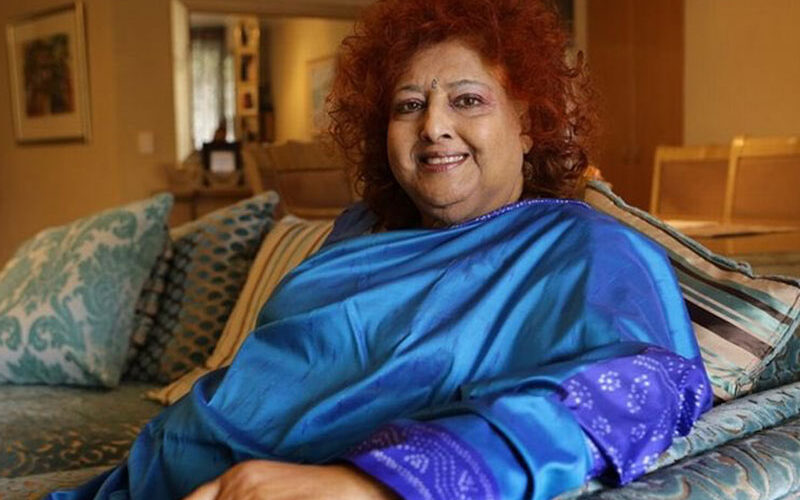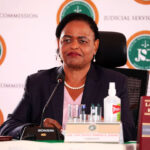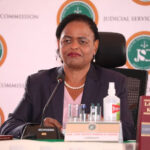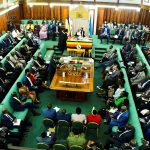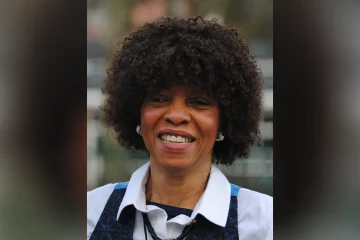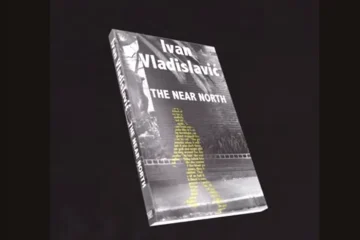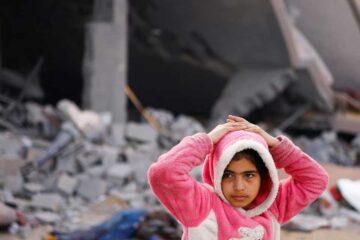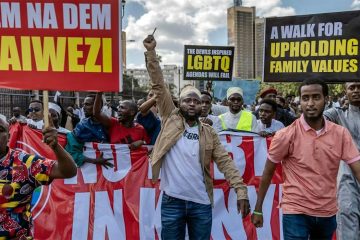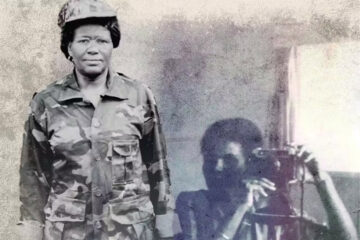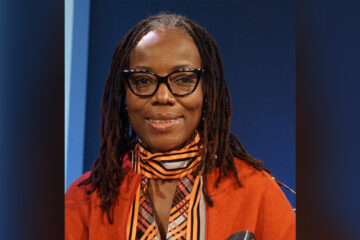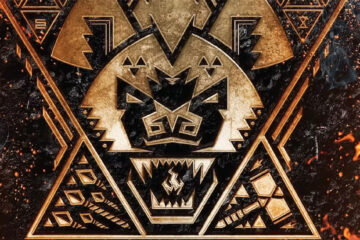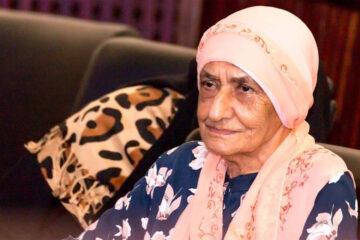In honour of Priscilla Jana, the legendary human rights lawyer, who passed away, The African Mirror publishes an excerpt from her book, “Fighting for Mandela”.
PRISCILLA JANA
IF the breadwinner was imprisoned. I would organise help as much as I could, and all the time I knew it was the right thing to do, just as using every possible angle of the law to fight cases and win acquittals was the right thing to do. This was giving me confidence in the work I took on. So when the exceptional case of Solomon Mahlangu landed on my desk, and in my view needed exceptionally bold handling, I just got on with it knowing I was actually risking my position with Ismail Ayob. If things became difficult, I decided, I was ready to strike out on my own. And that is exactly what happened. The murder file I was handed became one of the biggest landmark cases in the appalling history of the apartheid-era judiciary. It shocked the world.
By June 1977, a year after the Soweto uprising, a virtual onslaught against anti-apartheid activists was taking place and a general heightening of oppressive measures such as arrests, detentions without trial, prosecutions and torture. There was tremendous uncertainty about the ANC’s military wing and its plans for a nationwide backlash. On the afternoon of 13 June, that uncertainty developed into national hysteria and the fear that there could be random killings of white people. Two young men had returned to Johannesburg after training with MK in Angola. During a search of their belongings as they were climbing into a taxi to travel to Soweto, police had found an AK-47 assault rifle.
The two men – Mondy Johannes Motloung and Solomon Mahlangu – fled the taxi rank and disappeared into the crowd. They were shot at by a police officer and Mahlangu was hit in the ankle but the pair kept running, turning into Goch Street. Mahlangu ran into a busy warehouse and hid behind packing cases. Motloung, panicked, entered the warehouse and fired shots. Two white workers were killed. Police surrounded the area and Mahlangu came out from his hiding place with his arms raised. A huge crowd had gathered and I was in that crowd. I had been drafting pleadings and reading records in my office nearby when I’d heard the police sirens and seen people scattering. The entire city centre was alight with confusion and fear of imminent danger. Once the two men were arrested there were cries of ‘the ANC has come to kill us’. Evening newspaper headlines announced ‘Terrorists kill white people’. The families of Motloung and Mahlangu came to Ismail Ayob’s office to ask for help. I immediately informed the police that we represented them, but the following morning they were taken to court without legal representation. We had not been told there was to be a hearing. This was increasingly the case. I had no option but to seek out my new clients in Pretoria Central Prison. Mahlangu’s case has since become a cause célèbre in the history of many gross injustices in South Africa. Motloung, who did the shootings, had been beaten so severely by police and prison officers that he sustained serious brain damage. My first sight of him was shocking. His face was completely deformed and there was a huge injury on his head. In the cell with him Solomon Mahlangu told me he had been given electric shocks to his genitals and that his head was covered with a wet sack while he was beaten. He was an exceptional young man. When his mother broke down in tears at the sight of him, he asked her: ‘Why are you crying in front of these dogs? I don’t care what they do to me. If they spill my blood it may give birth to others like me.’
He and Motloung were detained incommunicado for nearly a year. During this time they were severely tortured. They had no access to family, friends, lawyers or doctors. When we finally got to the Supreme Court for trial, Motloung was declared unfit to stand trial and referred to a psychiatric unit. I visited him often over the years until his death in October 2006. He was never aware of Mahlangu’s fate and the huge international interest in their case. Before his trial the media had already found Solomon Mahlangu guilty. He faced extreme hostility in the court from police and prison officers, court officials, the prosecution team and the judge himself.
We had searched for months to find a senior counsel prepared to take the case working with me as attorney. Only Clifford Mailer, a junior counsel, had the courage to join me in court. Like me, he was utterly traumatised by the circumstances of Solomon’s trial, and remains so to this day. He argued that the doctrine of common purpose was being totally distorted and misused. He fought against the appointment of the notorious Judge Theron and his two assessors, the whole team having a reputation for toughness, cruelty and outright racism. He sought to have the judge recused, but failed. Mailer has described to me how lonely he felt throughout the trial in the absence of a silk to lead. He said: ‘To my dying day I will be disgusted that no senior counsel came in. It was the most distressing case of my career. There was mob hysteria, with whites choosing to believe that terrorists were on the loose in Johannesburg city centre. ‘It was clear that Solomon had had no intention to kill. The circumstances were clear. I had questioned him closely and all the evidence pointed to his truth. He was an exceptional young man; I had never met anyone like him. He was utterly dedicated, quiet, respectful and courteous towards us, understanding that we were doing our job as well as we could in the face of ferocious opposition. His conviction for murder was a travesty.’ Senior Counsel Ismail Mahomed was able to join Mailer to put mitigation to the court before sentence was announced. But both lawyers were subjected to open abuse by the general public in the gallery and the judge. There were threats to throw us out of court and to report us to the authorities. The judge occasionally stormed out of court. He interfered with the cross-examination of our witnesses and would unduly assist the State’s witnesses. We had no consulting room; we could talk to Solomon only in his police cell surrounded by officers who were listening in. Advocate Mahomed produced a formidable argument. Hewas fighting against the notion that Solomon was guilty of murder because of the law of Common Purpose. This law argues that all parties together committing a crime should face the same consequences, regardless of whether they carried out the same acts or knew of each other’s intent.
There should have been a maximum five years’ imprisonment for Mahlangu if he was found guilty. But the media and the public wanted more and the State was asking for the death penalty. Mahomed gave a powerful and moving account of Solomon’s young life in an attempt to save him. He had, he said, been brought up in abject poverty by his domestic worker mother, abandoned by his father. He had sold apples and other goods on the streets to help support his family. He had been picked up by police on the streets many times and arrested and beaten. He was bright and sensitive, an intelligent youth who was conscious of the disparity and discrimination he and fellow black people were suffering. Mahomed said he was a living example of apartheid’s devastating policies and this had ignited in him a burning desire to do something to overturn them.
When Soweto students revolted against Afrikaans as their tuition language, Solomon’s consciousness had been sharpened. He joined the liberation movement. He was known as gentle and caring, compassionate and respectful. He preferred a non-confrontational approach and wanted nothing more than to be able to study. But he had to help achieve freedom before he could achieve education. He spent six months training with MK, a crash course in sabotage. He had been sent back to South Africa through Swaziland to await further instructions for a mission. The rules were that no civilians should be killed in any sabotage operations. Solomon was to attack hard targets only. Mahomed presented his mitigation with passion and sincerity. There had been no intention on Mahlangu’s part to kill, and he had taken no part in his comrade’s actions. But this had no effect whatever on Judge Theron. There was to be no mercy or compassion for Solomon Mahlangu. He was labelled a terrorist and a murderer. I saw to my horror that there was actual joy in the public gallery. Heavily-armed security police took Solomon’s mother and brothers out of court and there was an upbeat, jovial mood among the public, by now anticipating the ultimate sentence.
Judge Theron found him guilty of Common Purpose formed in the ANC training camp. He held that the purpose was to kill white people in sabotage operations and that Solomon must have foreseen that. The iniquitous and controversial Common Purpose doctrine was used ruthlessly during apartheid to the detriment of true justice. Introduced as part of the Riotous Assemblies Act, it was used to criminalise protest action. If a murder or other offence was committed by one person in a crowd, everyone in the crowd could be convicted and sentenced as they shared a ‘common purpose’.
Some years after the blatantly unfair use of this doctrine in Solomon Mahlangu’s case there was a similar outcry when twenty-six people were convicted of murder during a protest. Police had broken up a township rally and a crowd had gathered outside the house of one police officer. He fired shots at them, and was then attacked by the entire mob and died as a result. Everyone attending the protest was sentenced to death and the case rumbled on for several years while courageous attorneys appealed the sentence, finally achieving justice in 1989. For Solomon there was to be no such justice: he was to be hanged. I heard gasps of delight from a white crowd baying for blood. He held his head high, turned around and raised his fist. Taking a lead from Mandela at his own trial, he shouted: ‘Amandla!’ Power to the people. I made an instant decision to raise my fist in solidarity and shout the response: ‘Awetu’ – which means ‘To Us’. In doing so I was going against my legal duties and my status in court, but it was irresistible. I would do the same thing today. For that breach of lawyerly conduct I was made to suffer. Judge Theron laid a complaint of unprofessional conduct against me to the Law Society. Its members, part of the secretive pro-apartheid conspiracy of brothers known as the Broederbond, tried to have me struck off. I saw then that there was no justice. I saw that the entire system was designed to perpetuate apartheid. In all the human rights cases I was taking to court I was to achieve rare successes. In South Africa there were no fair trials for black people. There was no independent judiciary and no impartial officials of justice. A fair trial was a myth. The apartheid state wanted the world to believe that all of its people were afforded a fair and just trial. But the judges were chosen from the minority white ranks and generally they were allies of the system. Judges for cases such as the Mahlangu trial were especially selected to frustrate a fair defence and, as with his trial, the maximum sentence was delivered.
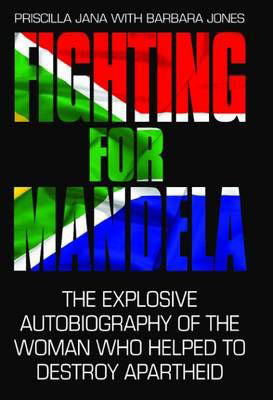
There was a case where an accused man was found guilty of scribbling ‘Viva Mandela’ on his coffee mug. He was given four years’ imprisonment for furthering the aims of a banned organisation. In the moments after Solomon had been sentenced and pushed roughly down the steps to the cells I searched for his mother who had been removed from the court earlier – a sure sign that he was about to receive the ultimate penalty. I found her sitting on the pavement outside, absorbed in grief. ‘Solomon did not kill anyone,’ she was saying over and over.
‘Why is this happening to him?’
I had no answers. Back at my office I drafted applications to appeal. Twice I was denied leave to appeal. Solomon would hang. As a last resort I wrote letters to the United Nations Security Council, to sympathetic governments and international civil societies, pleading with them to intervene for clemency. I used my employer Ismail Ayob’s letter-heading. He was irate, furious even. He threatened to summarily dismiss me from my article-ship and demanded that I make a choice between being a political activist or a lawyer. I rejected this with the contempt it deserved. Decency and humanity told me there was no choice. My priority was to behave as a human being and to use my position as a lawyer to further justice. I owed this to my client Solomon and I owed it to the black people of South Africa and the principles of justice. Lawyers were a necessary part of the struggle. I had no regrets whatsoever. I was probably going to lose my job and did not regret that either.
It was proving difficult to be a human rights lawyer. I was constantly targeted by the security forces and my home and office were raided continuously. Meanwhile, the international campaign for clemency for Solomon was gaining momentum. Virtually every country in the world and every head of State petitioned the South African government to spare Solomon’s life. We collected millions of signatures, and I was regularly visiting Solomon in the Pretoria death cells. He frequently witnessed the hanging of fellow inmates and was trying to give other prisoners courage. He taught them about the liberation struggle and its songs and anthems. Not one of our own country’s leaders had played a role seeking a reprieve for him, and now the date for his hanging had been set: 6 April 1979.
As a last resort, two days earlier, I had approached Archbishop Desmond Tutu with my friend Joe Veriava. We pleaded with him to take our petition to the government in Cape Town as a last desperate resort. He seemed reluctant, so Joe and I spent the entire night in a car outside his house, ready to make sure that he caught the first flight to Cape Town. Tutu took the petition for us, but it made no difference. Solomon’s mother had spent some time with her son on his last day. I had been allowed an appointment with him at 10p.m., and we all knew by now that the end was inevitable. My heart sank as I entered the room allocated to us at Fort Prison. The hangman’s scale was in a corner. I was shaking with trepidation and I could not speak. Solomon by contrast was strong and composed. He saw his role was to comfort and console me. He told me his last message to an unkind world: ‘Tell my people that I love them. Tell them to continue the fight. My blood will nurture the tree that bears the fruits of freedom.’
As I left, the low mournful singing of liberation songs was still echoing around the death cell block. I went to his mother’s house and sat with her and the elders on the floor to talk and pray, according to their Ndebele custom. We cried and hoped and waited. At 6 a.m. we heard the news on the radio. Solomon had been hanged.
A great wailing sound went up outside, it seemed to shake the foundations of the house. Thousands of youths and schoolchildren had gathered outside. They were singing anthems and their plan was to march to the prison to claim Solomon’s body to bury him like a hero. But the ever-watchful police had also gathered. They were preparing to use tear gas, so I walked outside and addressed the youths. I said, this is not what Solomon would want. It would be suicidal and he would not want them killed like the schoolchildren in Soweto. The police could not restrain themselves. They threw the tear gas and dispersed the crowd. There were fears of a mass uprising if Solomon’s body was released, so he was buried without ceremony in a pauper’s grave by prison officers. I knew the security police were monitoring me, but I could not fail to attend the commemoration ceremony for Solomon. I entered Soweto without a permit and they enjoyed arresting me. I was convicted and sentenced to pay a R50 fine – a large sum of money then – or serve fifty days in prison. – SA History Online.

